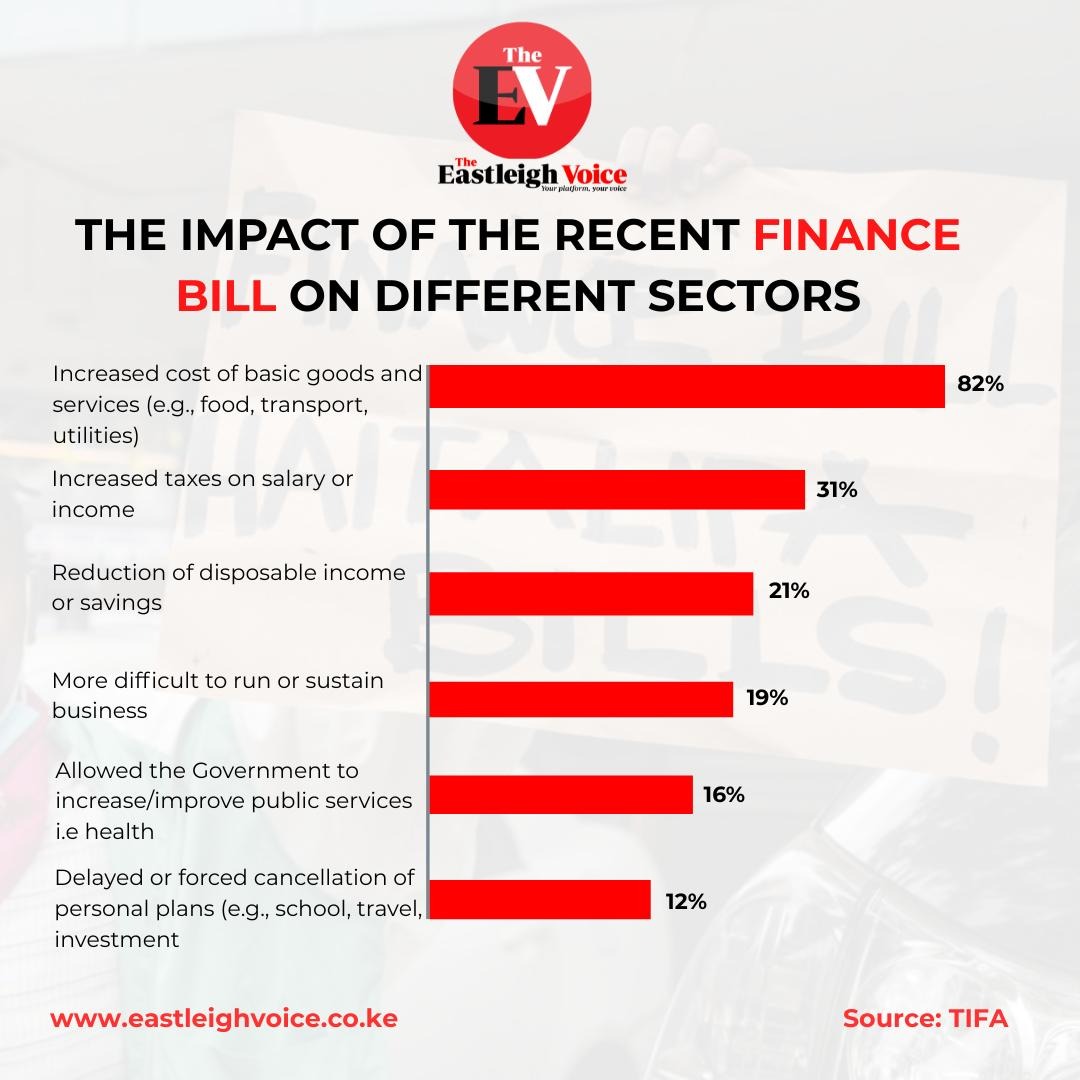The impact of the recent Finance Bill on different sectors

A TIFA survey shows that 82 per cent of citizens cite rising prices of basic goods and services such as food, transport, and utilities as the biggest impact, while 31 per cent point to higher taxes on salaries and income.
The Finance Bill is widely seen as worsening the cost of living and straining personal finances for Kenyans. A TIFA survey shows that 82 per cent of citizens cite rising prices of basic goods and services such as food, transport, and utilities as the biggest impact, while 31 per cent point to higher taxes on salaries and income.
Other effects include reduced disposable income or savings (21 per cent), difficulty running businesses (19 per cent), and delayed or cancelled personal plans such as schooling, travel, or investments (12 per cent). Only 16 per cent felt the bill improved public services, underscoring its unpopularity and the heavy toll it takes on everyday life.
More To Read
- CS Kinyanjui: Kenya cannot develop while rejecting all funding options
- Kenyan CEOs warn of tough times as high costs, taxes squeeze businesses
- No new levies in 2026 budget as Treasury focuses on improving revenue efficiency
- Tifa poll: Kenyans sceptical of Ruto-Raila broad-based government
- 73% of Kenyans believe government not doing enough to stop abductions, extra-judicial killings - TIFA Report
- Broad-based government gains 7 per cent support but faces rising opposition - TIFA
Other Topics To Read
Top Stories Today











































